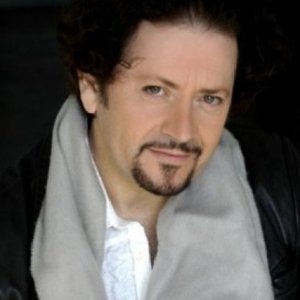Much has been said in the last few months about new immigrants entering our Nation’s borders, though the debate has often focused on those who don’t deserve to be here.
However, today, I want to share the story of one who does: Frederik Ndoci.
Frederik’s story is a familiar one in the United States.
It resonated with me because it mirrors that of so many of my people, including myself.
Frederick’s story is one of suffering and resilience, obstacles and strength, oppression and freedom.
But above all, it is the story of the quintessential American dream.
Frederik is an Albanian singer, songwriter, poet, writer, actor, and an international recording artist.
He was born in 1960, a peculiar time in the long history of this small nation.
It was at the height of power for the People’s Socialist Republic of Albania, a communist regime that rule from 1944 to 1992.
The regime ruled with an iron first, particularly against its own people.
And unsurprisingly, it failed to cultivate — and oftentimes explicitly banned — artistic talents, particularly those associated with western nations like the United States.
Nevertheless, Frederik’s talent was hard to miss, and thus hard to mute.
Recognizing this, his aunt Magdalena enrolled him in the local church’s choir — this was, of course, before the communist party
banned religion altogether.
Excited to finally practice his art, Frederik began singing in the group.
But Sister Anunjata, the nun tasked with overseeing the choir, had other plans.
“You aren’t one for the choir,” she told him.
Engulfed in tears, young Frederik thought that his dreams of becoming a musician came to a screeching halt.
Sensing his dismay, Sister Anunjata continued: “No, no. You can’t be in the choir because you were born to sing solo. God has blessed you with a special talent.”
From there, Frederik often left his small, north-Albanian city of Shkodër to perform for crowds and enter singing competitions, where he won first place time and again.
And his talents did not end there.
As an example of his extraordinary abilities, Frederik participated in his first art exhibition at age seven.
And he began acting as well, starring in leading and supporting roles.
As Frederik was raising in the ranks of stardom, the communist Albanian government took notice.
So, when he began participating in films that encouraged freedom and democracy, the communist government declared him “an enemy of the people” and accused him of working on behalf of other countries (including the CIA, FBI, and KGB, to name a few).
Like many of my Jewish brothers and sisters in Nazi Germany, Frederik was banned from performing his talents and from joining artistic organizations in Albania.
But again, Frederik’s talents were hard to mute. Although Frederik continued to pursue his acting career, he focused primarily on his first love: music. His unmatched range and abilities led to his recognition as “Man of a Thousand Voices.”
Frederik’s albums Canta Frederik and Sono Gitano, for instance, became bestsellers worldwide, particularly in Italy.
And another album, Frederik and Friends, featuring American Christian sacred songs, was very well received in the United States.
The world also noticed Frederik’s all-encompassing talents.
He has fifteen Grammy nominations for several categories, including record of the year, album of the year, song of the year, best new artist, best male pop vocal performance, best pop vocal album, and best instrumental arrangement.
Frederik also holds one IMA nomination and countless awards from his home country.
Understanding the plight of oppression from his own life experience, Frederick has made sure to exhibit his talents to those who fight against it.
Notably, when Pope Francis made his first official European visit to Albania, Frederik performed seven songs for the Pope.
He also performed for the late Mother Teresa. I was happy to find out that my dear friend has performed in Israel, too.
And members of Frederik’s family who lived in the United States were recognized for their efforts on behalf of the Jewish people in New York.
His wife belongs to Panduku Family, that has supported Jewish community in the past.
But there is more.
In addition to being a superstar cultural icon, Frederik is an exemplary family man.
A father of four, Frederik is incredibly dedicated to his wife and children.
His two oldest children, Flodia and Klea, live in California.
And his two youngest children — Nikolo, already an exceptional dancer; and Marilu, an academic superstar — are the source of his strength to continue fighting for what is right and serving as an example for all of us lucky enough to know him.
Frederik serves also as Cultural Adviser for the oldest Albanian — American organization named PanAlbanian Federation of America “VATRA” (The Hearth) founded on 1912, the most powerful organization in strengthening the relations between US and Albania.
When Frederik was named “Man of a Thousand Voices,” I don’t think it was only because he sings baritone, tenor, bass, countertenor, arias, romantic ballads, rock songs, and Napolitano — all in authentic style.
Nor was it only because he sings in six different languages — in three distinct vocal ranges.
Rather, it is because his strength, resilience, and determination to exercise his talents and fight his oppression makes him a man that speaks for us all — a man worthy and deserving of the privileges of this country.
